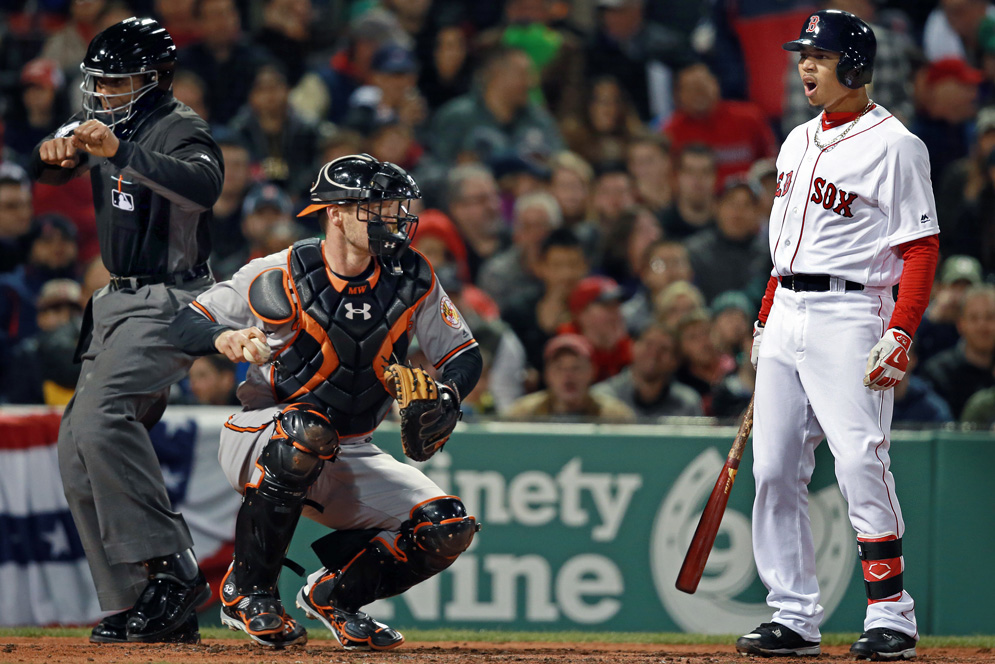Tags
Angel Hernandez, Blind Umpires, BU study of Umpiring, John Libka, Mark T. Williams, Mark Wegner, oe West, Umpires

How many times have you yelled, “You’re Blind, Ump”?
There is now proof that at least 20% of the calls by the umpires behind the plate over the last 11 years are wrong. That’s one in every five calls.
Recent data of over four million pitches between 2008 and 2018, with the use of sophisticated, triangulated tracking cameras, say this is so.
Further, there is a two strike bias, where umpires make more mistakes on these counts, calling a pitch a strike when in fact it is a ball. As umpires were twice as likely to call a true ball a strike on a two strike count, batters called out in these situations had reason to be angry with the ump (see photo of Mookie Betts above).
Specifically, 55 games ended with incorrect calls.
In 2018, there were 34,294 incorrect calls, an average of 14 per game, or 1.6 per inning.
And it is the older, more experienced umpires who made the most mistakes as the less experienced and younger ones were more likely to get the calls correct. Long time umpire Joe West had 21 errors per game, and Angel Hernandez had 19, for example, while John Libka, 32 and with only 1.5 years of experience, had got many more calls correct (as did Mark Wegner, 47).
Also, umpires selected for the World Series were not the best performing umps.
You can see these details, and many others, along with charts and names in this article by Boston University’s Mark T. Williams, who, assisted by a group of graduate students at BU’s Questrom School of Business, dove deeply into the data, analytics, and statistics to come up with these results.
Although MLB has had a system of rating their umpires, no one has done the kind of analysis that the new technology of triangulated cameras has made possible.
What will it mean for the future?
Williams believes that it doesn’t mean robots should replace umpires, but he believes there are some solutions that could make the situation significantly better. (See the end of the linked article above.)
In the meantime, it may be an overstatement to say the umpires ARE blind (in fact, they do seem to be getting the calls a bit better, tho they are still missing enough to change outcomes of games).
But if they’re still missing an average of 14 calls a game, then there is something seriously wrong. To what seems an unacceptable degree pitchers are benefiting, batters are losing out, and the outcomes of some of the games are questionable.
If your team has ever been the victim of bad ball/strike umpiring, you were not crazy to say “We waz robbed.”
(Hat Tip to Robyn G. for putting me on to Williams’ work: Analysis of Umpires’ Calls/Missed Calls

